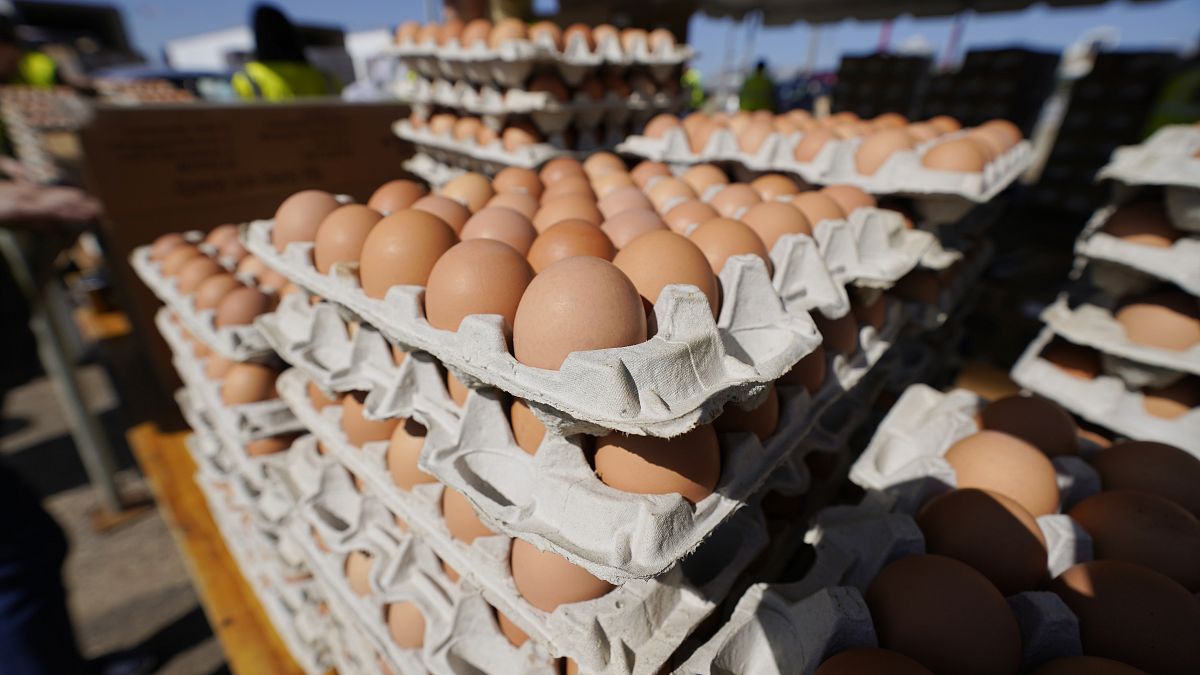The EU is expected to further reduce its imports of key food commodities from war-torn Ukraine after less than two weeks since applying the new controversial preferential trade scheme.
Imports of eggs from Ukraine have reached levels which means that the Commission will now impose restrictions within the next two weeks, an EU spokesperson has told Euronews, after the executive announced restrictions on oat imports from Ukraine until 5 June 2025.
Sugar imports are also in the crosshairs of the EU executive, according to trade experts familiar with the subject.
The move is a consequence of the recent tweak – requested and obtained by France and Poland – to the temporary suspension of all tariffs and quotas on Ukraine’s agricultural exports after Russia’s full-scale invasion of the country in 2022.
In force since 6 June, the new free-trade scheme includes an automatic safeguard mechanism intended to protect specific domestic sectors considered ‘sensitive’ – eggs, poultry, sugar, oats, maize, hulled grains, and honey – from increased imports arising as a result of lifting quotas and tariffs.
In practice, the Commission is allowed to trigger the so-called emergency brake and reintroduce tariff-rate quotas if imports of these commodities exceed the arithmetic mean of quantities imported between 1 July 2021 and 31 December 2023.
Sugar imports are also under close observation by the EU executive. Two sources briefed on the matter flagged sugar as a likely candidate for controls saying that figures for this commodity available on the customs union’s webpage are already above the emergency brake limit.
“We cannot speculate on the pace of future imports,” another Commission spokesperson told Euronews, adding that the EU Executive continues to monitor the relevant trigger levels.
Luc Vernet from the think tank FarmEurope previously told Euronews that part of the Ukrainian sugar arriving in the EU might have the status of inward processing – imported to be re-exported – which may influence the evaluation of the Commission.
In case the trigger level will be reached for sugar too, tariffs will be re-activated within a maximum of 14 days.
The issue is watched closely by the EU’s association representing European sugar users from the food and drink sector (CIUS) – worried about restricting the import volume of a key commodity for processing their products.
“We fear that in the upcoming years, the sugar volumes will not be enough to meet the demand of the EU market with this,” a CIUS spokesperson told Euronews.
Ukraine has recently set an export record of 108,000 tonnes of sugar in May, a consequence of the fact sugar beet has started being considered a good diversification option for the country’s grain producers. Kyiv exports 65% of its sugar to the EU, according to Ukraine’s National Association of Sugar Producers (Ukrsugar).

